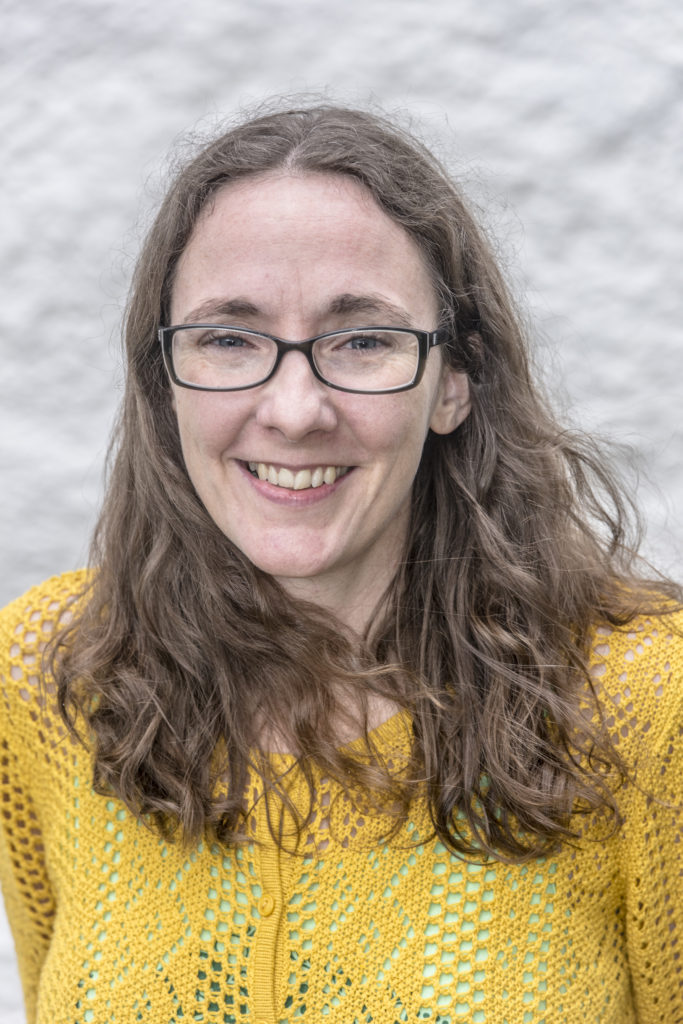
About the Author: Sophie Anderson grew up with stories in her blood, from her mother, who is a writer, to her Prussian grandmother, whose own storytelling inspired The House with Chicken Legs.
Born in Swansea but now living in the Lake District with her family, Sophie loves walking, canoeing and daydreaming. Her dream is to create stories that help children to explore the world and fall in love with its beautiful diversity.
Sophie is represented by Gemma Cooper of The Bent Agency. Her debut novel The House with Chicken Legs published in 2018 with Usborne in the UK and Scholastic in the US. Rights have also sold in China, Croatia, Germany, Iran, Italy, Korea, Poland, Portugal, Romania, Russia, Taiwan, Ukraine and Vietnam.
Find Sophie Anderson on the following platforms:
Sophie Anderson: No! I didn’t plan The House with Chicken Legs at all, I just had an idea for an opening scene and started writing. From the very beginning the story seemed to take on a life of its own. When I wrote the twist, I nearly dropped the laptop in shock! I didn’t know it was going to happen, yet at the same time it seemed to make perfect sense.
SA: My grandmother told me Baba Yaga tales from a very young age, so I think this story has been growing in me my whole life. Baba Yaga is a fascinating, ambiguous character and I have always carried her with me and sought to understand her. I think decades of wondering about her, and reading about her, led to The House with Chicken Legs.
SA: Wanting to break free of any boundaries drawn around you and carve your own destiny are universal desires, particularly relevant for children on the brink of adulthood. These matters were important to me as a child, and now as a parent I can see they are important for my own children, too.
Acceptance of loss is another theme in the book, because in the years preceding writing Marinka’s story I lost several family members and was working through my own grief, and also trying to help my family work through theirs.
SA: I have written both Middle Grade and YA books (that are unpublished), and have enjoyed writing both. But I do think I have perhaps found my place in Middle Grade. I love that time of life when you are first learning who you are and what sort of person you want to be. I am over forty but still feel like this inside!
SA: Slavic fairy tales have a special place in my heart, because of my grandmother. My favourites include Vasilisa the Beautiful, The Snow Maiden, and Sadko. I also love folk stories from all over the world; African tales about Anansi, African-American tales of Brer Rabbit, and the Middle Eastern stories from One Thousand and One Nights.
SA: This is such a difficult question because I enjoyed all sections, but for different reasons. Writing the beginning was wonderful as it felt like the start of an adventure. As the story grew it was huge fun to develop the Yaga world, and finding the right ending was challenging but hugely satisfying.
SA: I admire so many writers, but I especially love the work of David Almond, Katherine Rundell, Michelle Harrison, Grace Lin, and Jason Reynolds. It’s hard to describe how their work informs my writing because I think (in my case anyway!) so much happens subconsciously, but reading quality work is hugely inspiring and helps you understand how to craft a tale well.
SA: I have four children who I homeschool, so I have no writing schedule! Every day is different. I just try to write something every day, whenever and wherever I can. Somedays I don’t manage any words. On a good writing day, I might manage one thousand words.
SA: Editing was such a fascinating process and I loved working with my agent and editors. They really helped me refine and develop Marinka’s story into something that sang so much stronger than I ever could have imagined. Most of the edits focused on Marinka’s motivations, the pacing, aspects of world building, and character development. The folktale components are important, but we all wanted Marinka’s story arc to be at the fore. The Eastern-European expressions were checked and double checked by Russian speakers!
SA: I honestly have enjoyed every stage of the writing and publishing process! Every stage has its highs and lows, but ultimately it is all about making the book the best it can be.
SA: That life is full of joy and sorrow, loneliness and companionship, pride and regret. To live means experiencing it all. Some things might feel heartbreaking, but they can never truly break your heart. There is always hope for a brighter future, and you might find it in the most unexpected of places – in an encounter with a young friend or an old Yaga, in a house that you thought was your enemy, in the beak of a bird, or in the ripples on a puddle’s surface. Even death can inspire us to embrace life.
I hope my readers try to appreciate every moment – whether light or dark – and keep striving for happiness. We can shape and mould our futures, and the possibilities are as endless as the stars!
PRR Writer, Alessandra De Zubeldia